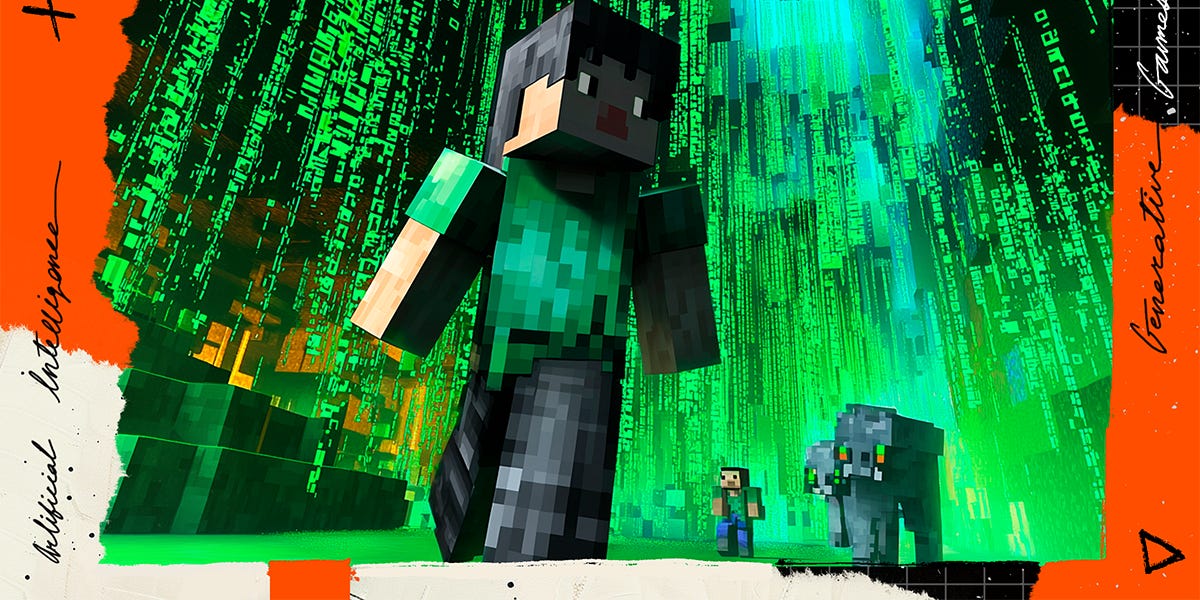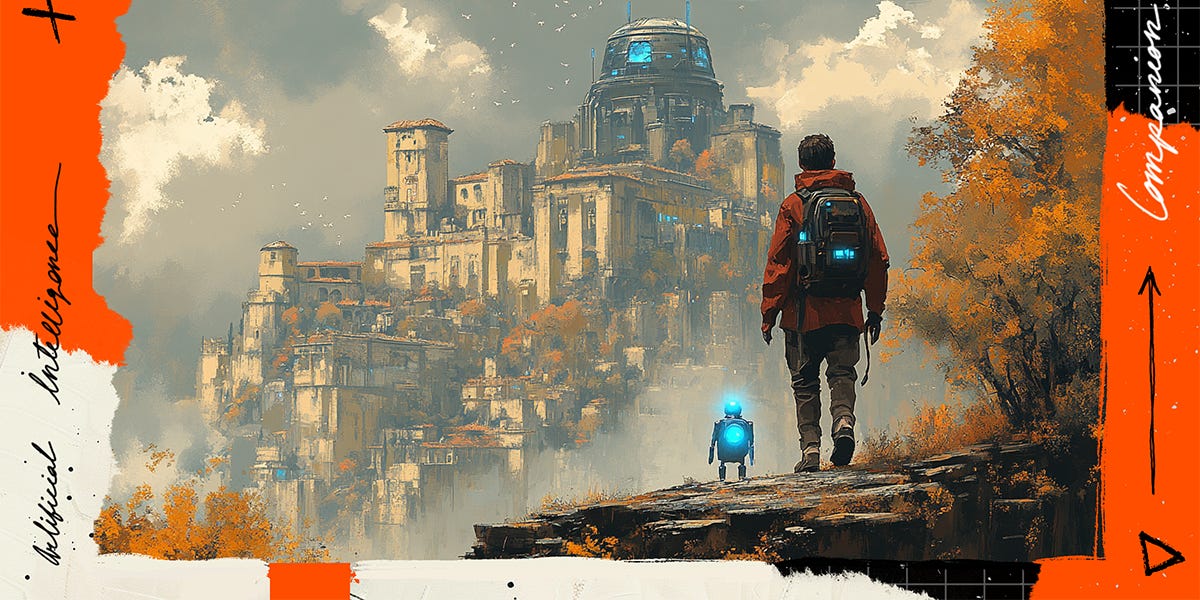- Hungry Strategist
- Posts
- 🎮 The 3 Stages of Evolution for AI with Gaming
🎮 The 3 Stages of Evolution for AI with Gaming

Estimated read time: 5-mins
Hey There
Hungry Strategist is an ever-evolving effort to help our readers connect better with tech. And we won’t be able to do it without you.
If you have just 30secs, it would help us tremendously if you can fill out this form to let us know what you would like to see more. 🙏
TLDR

Forecasted US$95B market size by 2024
Source: newzoo
As a gamer myself, it’s fascinating to witness the history of gaming development, how it eventually evolved to this behemoth of $~100B in 2024. A quick rundown of the history as I see it:
↳ Starting from PC dominance, IBM PCs, Apple II, and later DOS-based systems brought 8-bit and 16-bit games, paving the way for classics like Doom (1993)
↳ Console games enter the space to fill in the gaps of portability (Nintendo) that the then complex PC did not offer
↳ The internet era opened doors to online gaming, gradually converging gamers to communities like the World of Warcraft, League of Legends, etc.
↳ Mobile games to the rise (Angry Bird, Candy Crush) reaching the largest audience base ever. It broke down barriers, making games accessible to everyone and anyone with a smartphone.
↳ Cloud gaming, using high-end infrastructures to bring high-quality gaming to users without expensive hardwares
And now here we are, at yet another pivotal point in time, where we are seeing new transformations driven by AI. The snippet from a report on the effect of AI on gaming serves as a lighthouse for what may come next.

“Global AI in games” market size is expected to grow by $4.5B at 24.65% CAGR between 2024-2028, fueled by the adoption of AR and VR
Source: technavio
At a high-level, the report predicts that AR and VR are the key drivers shaping the gaming. These technologies are transforming how players interact, offering immersive, engaging experiences. AI, meanwhile, takes a supporting role, enhancing these interactions but staying in the background rather than being the main focus. Think of it as enriching the stage rather than stealing the spotlight.
I conquer with the report’s point of view, but think we should add more color to it for the extra specifics that a gamer like me will appreciate.
Let’s take a look at what’s going on lately first.
What’s AI doing with gaming lately?
AI-powered NPC

A simulated world where only AI lives
Source: https://github.com/joonspk-research/generative_agents
Non-playable characters (NPCs) will become significantly more intelligent, interacting with players in more natural ways.
The image highlights results from a Stanford study where researchers created a virtual town populated by NPCs (non-playable characters) capable of independent thought and behavior. These NPCs don’t just act—they evolve. Each has dynamic properties like mood, relationships, and goals, which change as they interact and progress through the game. This led to unpredictable, often hilarious moments that feel remarkably lifelike.
 Game created by Fable that simulates Sam Altman and OpenAI’s drama where each participant is an AI agent |  AI agent by nunu.ai that’s playing Pokemon Emerald and explaining it’s reasoning to streaming audiences |
Infinite plot generated by AI

Unbounded, created by Google, introduces a gaming world that’s infinite, generated as you play
Source: https://generative-infinite-game.github.io/
The user can interact with the generative game using natural language, and character’s meters / properties update accordingly. A spontaneous and unconstrained story unfolds while the user plays, and the character can explore new environments with a myriad of possible actions and unexpected interactions. The game runs in interactive speeds, refreshing every second.
Genesis AI
Now bringing it to a whole new level. We thought Oasis with its Minecraft like world generation was the state-of-the-art. Until it got smoked by some big guns.
 GameGen-X |  World Labs |  Genie 2 by Google |
Merging this and the infinite plot application, we become the Creators ourselves.
“Let there be light.”
The Next: Hold on to my Crystal Ball
Now back to our thoughts on the evolution of AI in gaming. We expect it to unfold in three key stages:
Short-term / Pilot stage
We will see experimental adoption of LLM and AI agents into NPC and companions. These implementations will be basic, as gamers, though familiar with Open World games like Elden Ring and Breath of the Wild, are not yet accustomed to concepts like Open Plot or Unlimited World gameplay. Without a clear structure, such games risk losing focus and delivering subpar experiences.
In short, while progress will begin, don’t expect groundbreaking changes just yet; the ecosystem isn’t fully prepared.Mid-term / Experience stage
As hardware capabilities improve and AR/VR technologies mature, games will start introducing truly interactive experiences. Enhanced AI models will offer better performance at lower costs, driving innovation.
However, the balance between delivering immersive experiences and keeping costs manageable will be critical. Companies will face turbulence as they adapt to these shifts, with financial feasibility becoming a key determinant of success.
This stage will also test the limits of current gaming infrastructure—networks, gaming engines, device hardwares—to assess their ability to sustain AI-driven experiences.Long-term / Imaginative stage
This is the era where gaming transcends traditional boundaries. Games will evolve into expansive, limitless simulations, constrained only by the creator's imagination. Worlds won’t just be built—they’ll be alive, with dynamic ecosystems and narratives shaped entirely by players.
Can’t wait to make my own Soul Series!
Food of Thought
Why so serious?



